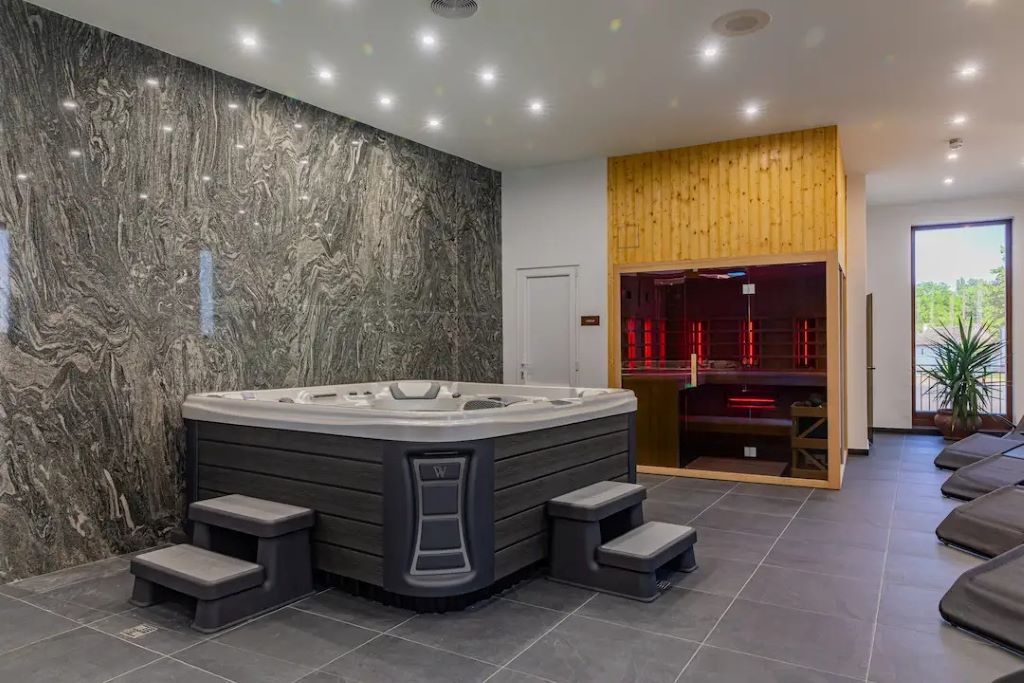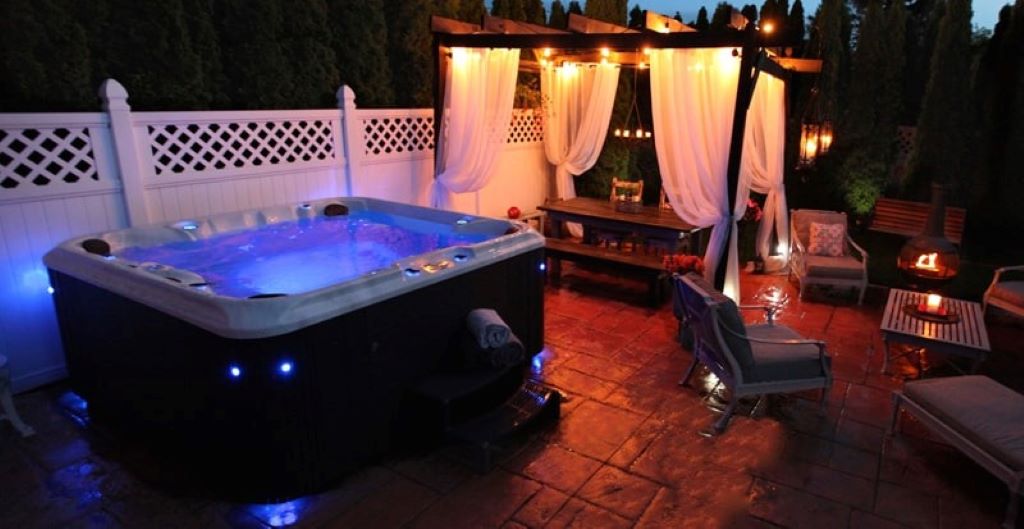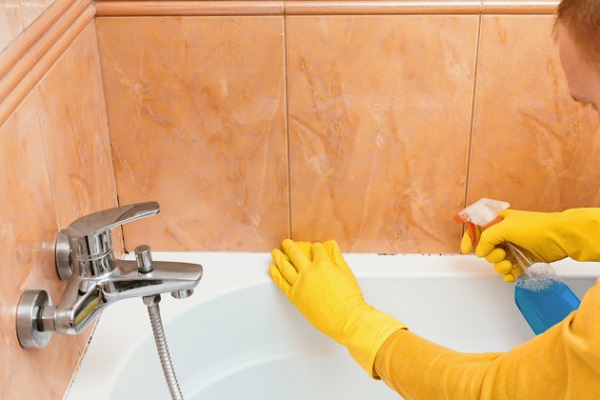The allure of a bubbling, warm jacuzzi bathtub is undeniable. After a long day, the prospect of sinking into swirling, therapeutic waters is a dream for many homeowners. But beyond the immediate comfort and relaxation, a crucial question lingers: does installing a jacuzzi bathtub genuinely add value to your home? This article delves into the intricacies of this question, examining the potential benefits, drawbacks, and market trends that influence the decision.
The Appeal of Jacuzzi Bathtubs: Beyond Relaxation
Jacuzzi bathtubs, also known as whirlpool tubs, offer more than just a luxurious soak. They are often touted for their therapeutic benefits, including muscle relaxation, pain relief, and stress reduction. The hydrotherapy provided by the jets can alleviate tension, improve circulation, and promote better sleep. For individuals with arthritis or other chronic pain conditions, a jacuzzi bathtub can be a valuable tool for managing discomfort. This perceived health benefit translates to a sense of well-being, which can be a powerful selling point for potential homebuyers.
Moreover, a jacuzzi bathtub elevates the bathroom from a purely functional space to a personal spa. It adds a touch of sophistication and indulgence, transforming an ordinary bathroom into a luxurious retreat. This aesthetic appeal can significantly enhance the perceived value of a home, particularly in markets where luxury and comfort are highly prized.
Potential Value Addition: Market Trends and Demographics
Whether a jacuzzi bathtub adds tangible monetary value to a home largely depends on market trends and the demographics of potential buyers. In higher-end markets, where luxury amenities are expected, a well-maintained jacuzzi bathtub can be a significant selling point. For buyers seeking a spa-like experience at home, it can differentiate a property from others in the same price range.
However, in more modest markets, the value proposition may be less clear-cut. Younger buyers, in particular, may prioritize modern, minimalist designs over traditional luxury features. They might prefer a spacious walk-in shower or a sleek soaking tub over a jacuzzi. Additionally, concerns about water consumption and maintenance can deter some buyers.
Therefore, understanding the local market and the target demographic is crucial. Consulting with a real estate agent familiar with the area can provide valuable insights into whether a jacuzzi bathtub aligns with buyer preferences.
Factors Influencing Value: Condition, Size, and Features
The condition, size, and features of the jacuzzi bathtub significantly impact its perceived value. A dated, poorly maintained tub with outdated jets and fixtures can detract from a home’s appeal. Conversely, a modern, well-maintained tub with advanced features like chromatherapy lighting, aromatherapy dispensers, and adjustable jets can be a significant asset.
The size of the tub also matters. A large, spacious jacuzzi bathtub can create a luxurious focal point in a master bathroom. However, it can also consume significant space, which may be a concern for smaller bathrooms. The layout and design of the bathroom must accommodate the tub without compromising functionality or aesthetics.
Furthermore, the quality of installation is paramount. A poorly installed jacuzzi bathtub can lead to leaks, water damage, and other costly problems. Proper plumbing, electrical wiring, and structural support are essential to ensure the tub’s longevity and performance.

Potential Drawbacks: Maintenance, Cost, and Accessibility
While a jacuzzi bathtub offers numerous benefits, it also comes with potential drawbacks that can impact its value. Maintenance is a significant concern. Jacuzzi bathtubs require regular cleaning to prevent the buildup of mold, mildew, and bacteria in the jets and plumbing system. This can be time-consuming and require specialized cleaning products.
The cost of installation and operation can also be substantial. Jacuzzi bathtubs are more expensive to purchase and install than standard bathtubs. They also consume more water and energy, which can lead to higher utility bills.
Accessibility is another consideration. For individuals with mobility issues, a jacuzzi bathtub can be challenging to enter and exit. This can limit its appeal to older buyers or those with disabilities. A walk-in jacuzzi bathtub can address this concern, but it comes with a higher price tag.
Modern Alternatives: Showers, Soaking Tubs, and Steam Rooms
In recent years, alternative bathroom features have gained popularity, challenging the dominance of jacuzzi bathtubs. Spacious walk-in showers with multiple showerheads and body sprays offer a luxurious and modern showering experience. Soaking tubs, with their minimalist designs and deep basins, provide a serene and relaxing bathing experience.
Steam rooms and saunas are also gaining traction, offering therapeutic benefits similar to jacuzzi bathtubs. These alternatives often require less maintenance and consume less water, making them attractive to environmentally conscious buyers.
Therefore, when considering a jacuzzi bathtub, homeowners should weigh its benefits against the appeal of these modern alternatives.
ROI Considerations: Balancing Cost and Potential Gains
Determining the return on investment (ROI) for a jacuzzi bathtub is complex. While it can enhance a home’s appeal and potentially increase its selling price, it’s essential to consider the cost of installation, maintenance, and operation.
Homeowners should carefully evaluate their budget and the potential gains before making a decision. Consulting with a real estate agent and a bathroom renovation specialist can provide valuable insights into the ROI potential in their specific market.
Furthermore, focusing on high-quality materials and professional installation can maximize the ROI. A well-designed and properly installed jacuzzi bathtub can add lasting value to a home, while a poorly executed project can lead to costly repairs and a diminished return.
Enhancing Appeal: Complementary Bathroom Upgrades
To maximize the value of a jacuzzi bathtub, homeowners should consider complementary bathroom upgrades. Upgrading the bathroom’s overall aesthetic with modern fixtures, stylish tiles, and elegant lighting can enhance the spa-like ambiance and create a cohesive design.
Adding features like heated floors, towel warmers, and built-in sound systems can further elevate the bathroom’s luxury and appeal. These upgrades can create a truly indulgent bathing experience, making the jacuzzi bathtub an even more desirable feature.
Furthermore, ensuring proper ventilation and moisture control is crucial to prevent mold and mildew growth. Installing a high-quality exhaust fan and using moisture-resistant materials can protect the bathroom’s integrity and enhance its long-term value.
People Also Ask (FAQs)
-
Q: Does a jacuzzi tub increase home value in all markets?
- A: No, the impact varies significantly depending on the local market and buyer demographics. Luxury markets tend to value them more than modest markets.
-
Q: Are jacuzzi tubs expensive to maintain?
- A: Yes, they require regular cleaning and maintenance to prevent mold and bacteria buildup, which can be time-consuming and costly.
-
Q: What are the benefits of a jacuzzi tub?
- A: They offer therapeutic benefits like muscle relaxation, pain relief, and stress reduction, and they add a luxurious spa-like feel to the bathroom.
-
Q: Are there alternatives to jacuzzi tubs that add value?
- A: Yes, spacious walk-in showers, soaking tubs, and steam rooms are popular alternatives that can enhance a home’s appeal.
-
Q: Does a walk in jacuzzi tub add more value?
- A: Yes, for demographics that need better accessibility, this can be a huge value add.
-
Q: What features should I look for in a modern jacuzzi tub?
- A: Look for features like adjustable jets, chromatherapy lighting, aromatherapy dispensers, and high-quality materials.
-
Q: How often should a jacuzzi tub be cleaned?
- A: Regular cleaning, ideally after each use, is recommended to prevent bacteria growth. A deep clean should be conducted monthly.
-
Q: Are jacuzzi tubs energy efficient?
- A: They tend to consume more water and energy than standard tubs, so energy-efficient models are recommended.
-
Q: Can a DIY install of a jacuzzi tub damage my home?
- A: Yes, improper installation can lead to leaks, electrical problems, and structural damage. Professional installation is highly recommended.
-
Q: How long do jacuzzi tubs typically last?
- A: With proper maintenance, they can last for 10-20 years or more.
Conclusion: A Personalized Decision
Ultimately, the decision to install a jacuzzi bathtub is a personalized one. While it can add value to a home, particularly in luxury markets, it’s essential to weigh the benefits against the potential drawbacks. Understanding the local market, the target demographic, and the cost of installation and maintenance is crucial.
Homeowners should prioritize quality materials, professional installation, and complementary bathroom upgrades to maximize the ROI. By carefully considering these factors, they can make an informed decision that enhances their home’s value and creates a luxurious bathing experience.




